Middle East
How do you keep going in Gaza when everything tells you to stop? | Israel-Palestine conflict
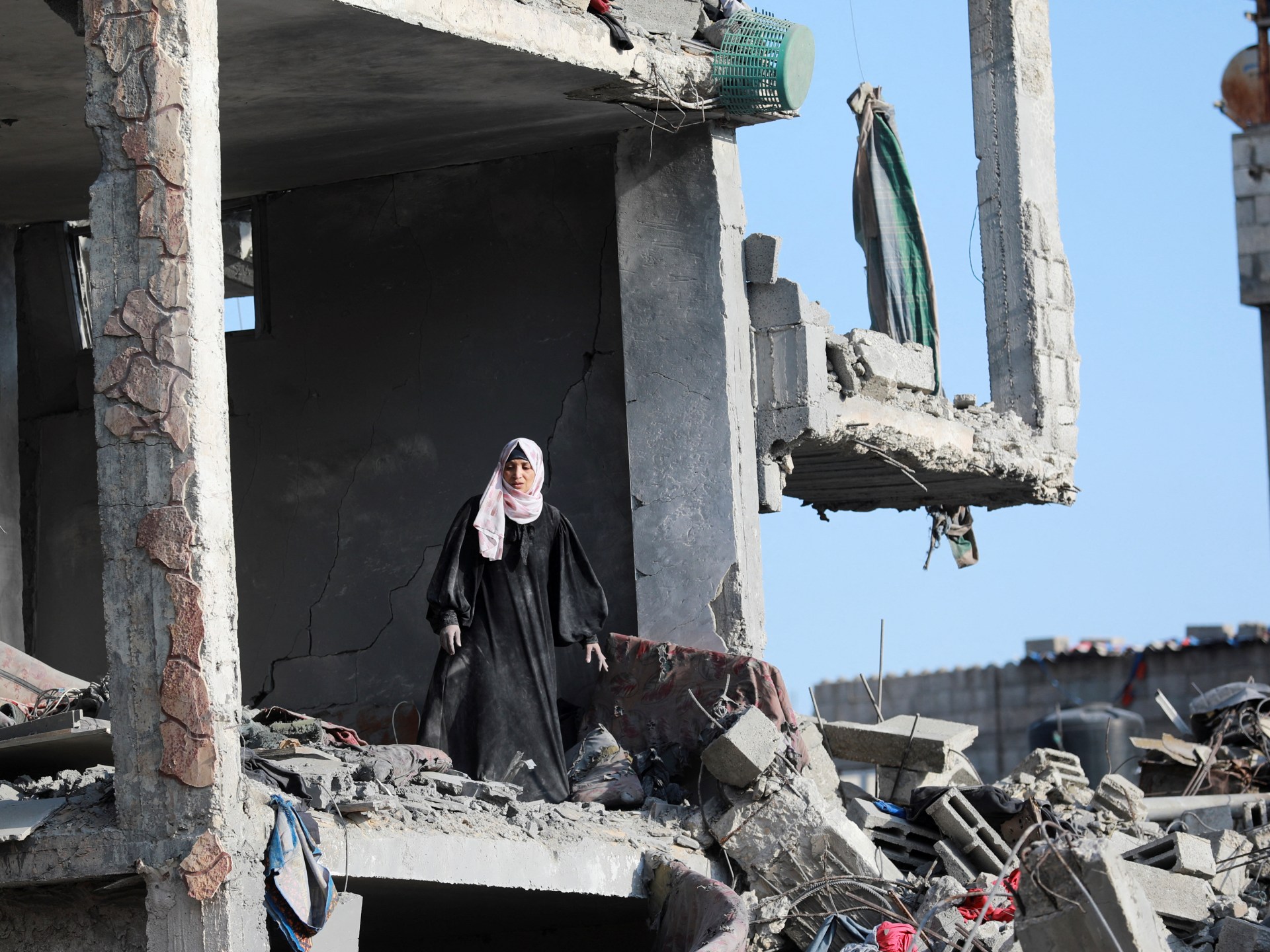
Before the war, my life was simple. Like many young women in Gaza, I carried within me a mixture of ambition and anxiety. My dream was to graduate from the Islamic University with honours and become a writer. My fear was that the constant attacks and instability in Gaza would somehow impede my pursuit of education and a writing career.
However, I never imagined that everything I knew – my home, my university, my friends, my daily routine and my health – could vanish, leaving me struggling to keep going.
When the war began, we thought it was just another short round of fighting – one of the many escalations we had grown used to in Gaza. But something about this time felt different. The explosions were closer, louder, and lasting longer. We soon realised that this nightmare was not going to end; it was only going to get worse.
On December 27, 2023, we received our first “evacuation order”. There was no time to think. We had just begun gathering a few belongings when the sound of bombing grew louder. The upper floors of the building we lived in were being targeted.
We fled the building in a hurry, carrying only a small bag. My father was pushing my grandmother in her wheelchair, while I held my younger brother’s hand and ran into the street, not knowing where we were going.
The neighbourhood looked like a scene from the horrors of the Day of Judgement: people were running, screaming, crying, and carrying what remained of their lives.
Night fell, and we found temporary shelter at a relative’s house. Sixteen of us slept in one room, without privacy or comfort.
In the morning, we made the difficult decision to take refuge in one of the displacement camps declared a “humanitarian zone”. We owned almost nothing. The weather was bitterly cold, water was scarce, and we had only a few blankets. We washed, cleaned, and cooked using primitive methods. We lit fires and prepared food as if we had gone back to the Stone Age.
Amid all of this, we received the news: our home had been bombed.
I refused to believe what I had heard. I sat and cried, unable to comprehend the tragedy. My father’s goldsmith workshop was on the ground floor of the building, so when it was destroyed, we did not just lose walls and a roof – we lost everything.
The days passed slowly and heavily, wrapped in longing and misery. I lost contact with most of my friends, and I no longer heard the voices that used to fill my days with warmth. I would check in on my closest friend, Rama, whenever I had a brief chance to connect to the internet. She lived in northern Gaza.
On January 15, 2024, my friend Rawan sent me a message. It did not reach me immediately. It took days because of the communications blackout.
The words were simple, they shattered me from the inside: “Rama was martyred.”
Rama Waleed Sham’ah, my closest friend at university. I could not believe it. I read the message over and over again, searching for a different ending, a denial. But the truth was silent, harsh, and merciless.
I didn’t get to say goodbye. I didn’t hear her last words, I didn’t hold her hand, or tell her “I love you” one last time. I felt as though I was breathing without a soul.
While I was still processing that grief, I received even more devastating news: on February 16, 2024, my father’s entire extended family – all his cousins, their wives, and their children – were killed. I saw my father break in a way I had never seen before. His grief was so deep that words could not describe it.
Then, death knocked on our door.
On June 8, 2024, we had just moved from our tent to a rented apartment, trying to start our lives over, when the Israeli army surrounded the area. I was the first to see the tank slowly moving up the street. I panicked and ran towards my father, shouting. But I didn’t reach him. In that moment, a missile struck the building we were in. All I saw was thick smoke and dust filling the air.
I didn’t know if I was alive or not. I tried to say the shahada, and by the grace of God, I managed to do so. Then I started screaming, calling for my father. I heard his voice faintly from a distance, telling me not to go out because the drone was still bombing.
I took a few steps, then lost consciousness. All I remember is that they carried me down the building and covered me with a blanket. I was bleeding. I would regain consciousness for a few seconds, then lose it again.
The ambulance could not reach our street because the tank was at the entrance. My mother, my sister, and I bled for two hours until some young men from the area managed to find a way to get us out. They carried me in a blanket to the ambulance. The paramedics started bandaging my wounds right there in the middle of the street, in front of everyone.
All the way, I heard their whispers, saying that I was between life and death. I heard them, but I could not speak.
When I reached the hospital, they told me that I had sustained injuries to my head, hands, legs, and back. The pain was unbearable, and my mother’s absence added to my fear. I was rushed in for an emergency surgery.
I survived.
After leaving the hospital, I had to go back for dressing changes. Each visit was a painful experience. I would choke every time I saw the blood. My father, who accompanied me every time, would try to ease these visits, telling me, “You will be rewarded, my dear, and we will get through all of this.”
I fell into a deep depression, suffering from both physical and emotional pain. I felt as though I was drowning in an endless spiral of sorrow, fear, and exhaustion. I no longer knew how to breathe, how to continue, or even why.
We had no roof to shelter under. Finding food was a struggle. The painful memories of loved ones who had passed haunted me. The fear that my family and I could lose our lives at any moment made me feel utterly helpless. I felt everything was screaming that I could not go on.
Yet, in the darkness of despair, I continued to live, day after day. I was in pain, but I lived.
I went back to reading – whatever books I could find. Then, when my university announced it would resume lectures online, I signed up.
My hand was still broken, wrapped in a cast, and I could barely use it. My mother helped me, holding the pen at times and writing down what I dictated. My professors understood my situation and supported me as much as they could, but the challenges were many. I struggled to access electricity and the internet to charge my phone and download lectures. Sometimes, I would lose exams due to power outages or poor network, and I would have to postpone them.
Still, I kept going. My physical condition gradually started to improve.
Today, we are still living in a tent. We struggle to secure the most basic needs, such as clean water and food. We are experiencing famine, just like everyone else in Gaza.
When I look at the scars of war etched into my body and memory, I realise that I am no longer the same person. I have found within myself a strength I never knew existed.
I have found a path through the rubble, meaning in the pain, and a reason to write, to witness, and to resist despite the loss. I have made the decision to stay alive, to love, to dream, to speak.
Because, quite simply, I deserve to live, just like every human being on earth.
The views expressed in this article are the author’s own and do not necessarily reflect Al Jazeera’s editorial stance.
Middle East
Fear and intimidation at Newark airport | Israel-Palestine conflict
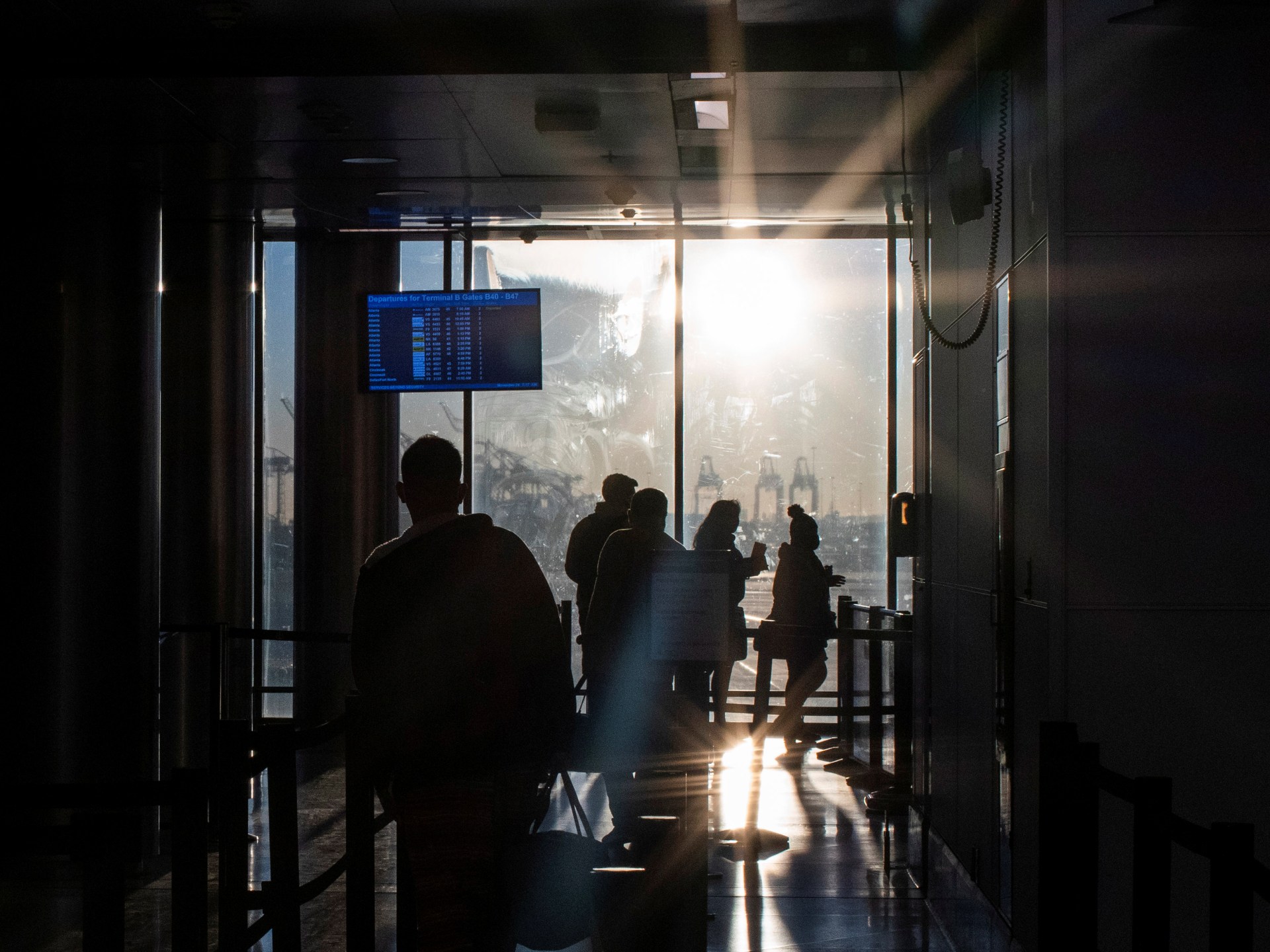
I am no stranger to political repression and censorship. I have lived in Germany for five years now, and as a Palestinian journalist involved in pro-Palestinian advocacy, I have experienced repeated harassment at the hands of the German authorities.
My husband, a German citizen, and I, an American citizen, have grown accustomed to being held for hours at a time, subjected to invasive interrogations about our travels, and having our belongings thoroughly searched without clear justification. But we were shocked to find out that these tactics, designed to intimidate and deter, have now been taken up by the United States to target Palestinians amid the ongoing genocide.
I always knew that citizenship offered only limited protection, especially when dissent is involved. But deep down, I still believed that freedom of speech, the right to speak without fear, meant something in my country of birth.
I was wrong. The harassment we endured on March 24 upon arriving in the US shattered that illusion. Our Palestinian identity, our political work, our family ties – all of it makes us permanent targets, not just in Germany, but now in the US, too.
Prior to departure, while we were at our gate in Frankfurt airport, four agents approached me and identified themselves as officers from the US Department of Homeland Security (DHS). They said they were specifically looking for my husband, who had just stepped aside to buy water and juice for our sons.
“We just want to make sure your ESTA visa is in order,” one of them said.
They took his passport, flipping through it and photographing every single page while one of them stayed on the phone, relaying information. They asked about our visit to Gaza in 2022, after seeing the Rafah border stamp.
“Where did you go in Gaza?” one agent asked.
“Khan Younis,” my husband replied.
“Where does your family live now?”
“All over,” he said. “They’re living in tents across the Strip, you know, because of the war.”
“What did you do while you were there?”
“Visited family,” he answered.
It was clear we were targeted. I did not see any other passengers undergoing a similar check. This meant that either DHS was actively researching passengers before their departure to the US, or – even more troubling – the German authorities were communicating directly with DHS to flag the background and political activity of “suspect” travellers.
Upon arrival at Newark airport in New Jersey, my husband and I were separated and individually interrogated, each of us still holding a sleeping child. The men questioning us did not identify themselves; I believe they were DHS agents, not border police.
They first asked me about the purpose of my trip and my travel to Gaza. They wanted to know who I had met in Gaza, why I had met them, and whether anyone I encountered was affiliated with Hamas. At one point, an officer deliberately became ambiguous and instead of referencing Hamas, asked if “anyone from [my] family was a part of the government in Gaza”.
At one point, they asked whether I experienced violence from Israeli soldiers, to which I responded: “Israeli soldiers weren’t in Gaza in 2022.”
“Did anyone in your family experience violence during this war?”
“Yes,” I responded. “Fifty were killed.”
“Were any of them Hamas supporters?” was the response I received.
As if political affiliation could justify the incineration of a family. As if children, elders, mothers, reduced to numbers, must first be interrogated for their loyalties before their deaths can be acknowledged.
They knew I was a journalist, so they demanded to know the last article I had written and where it was published. I told them that it was a piece for Mondoweiss about the abduction of Mahmoud Khalil, in which I also warned about the dangers of the Trump administration’s policies. This seemed to heighten their scrutiny. They demanded my email address, my social media accounts, and jotted down my phone number without explanation.
Then they took our phones. When I asked what would happen if I refused, they made it clear I had no choice. If I did not comply, my phone would still be taken from me, and if my husband did not comply, he would be deported.
When they finally returned our electronics, they issued a chilling warning to my husband: “You have been here seven times without an issue. Stay away from political activity, and everything will be fine.”
Subsequently, I was advised by legal counsel not to attend any demonstrations, not even by myself, during our stay. Our movements, our words, and even our silences were under watch, and anything could be used against us.
What happened to us was not random; it was intentional. It was meant to scare and intimidate us. Whether it is in Germany, in the US, or elsewhere, the goal of these tactics is the same: to make us feel small, isolated, criminalised, and afraid. They want us to doubt the worth of every word we write, to question every protest we join, to swallow every truth before it reaches our lips. They want us to forget the people we have lost.
Fifty members of our family were murdered in the US-backed genocide in Gaza. Fifty souls, each with their own dreams, laughter, and love, extinguished under the roar of bombs and the silence of the world. Our family’s story is no different from thousands of others – stories that vanish from headlines but live forever in the hearts of the survivors.
They expect us to carry this unbearable weight quietly, to bow our heads and continue living as if our world were not ripped apart. But we do not bow.
And that is why they fear us; they fear a people who refuse to disappear. Palestinians who dare to speak, to organise, to simply bear witness are marked as dangerous.
I was warned that speaking about our experience at the airport would make the next encounter even harsher, even more punishing. But we must remember: there is nothing this state can do to us that can compare to what is being done to the people of Gaza. Our passports are only paper. Our phones are only metal and glass. These are things they can confiscate, things they can break. But they cannot take away our voices, our memories, and our commitment to justice.
On our way out, the officers asked my husband one last question: “What do you think of Hamas? Are they good?”
He responded: “My concern is fighting a genocide that has taken the lives and freedom of my family and my people. Anything else, I am not interested in answering.”
That should be all of our concern. Nothing should distract us from the urgent, undeniable truth: a people are being slaughtered, and our responsibility is to stand with them.
The views expressed in this article are the author’s own and do not necessarily reflect Al Jazeera’s editorial stance.
Middle East
ICJ dismisses Sudan’s genocide case alleging UAE backing of RSF rebels | Sudan war News
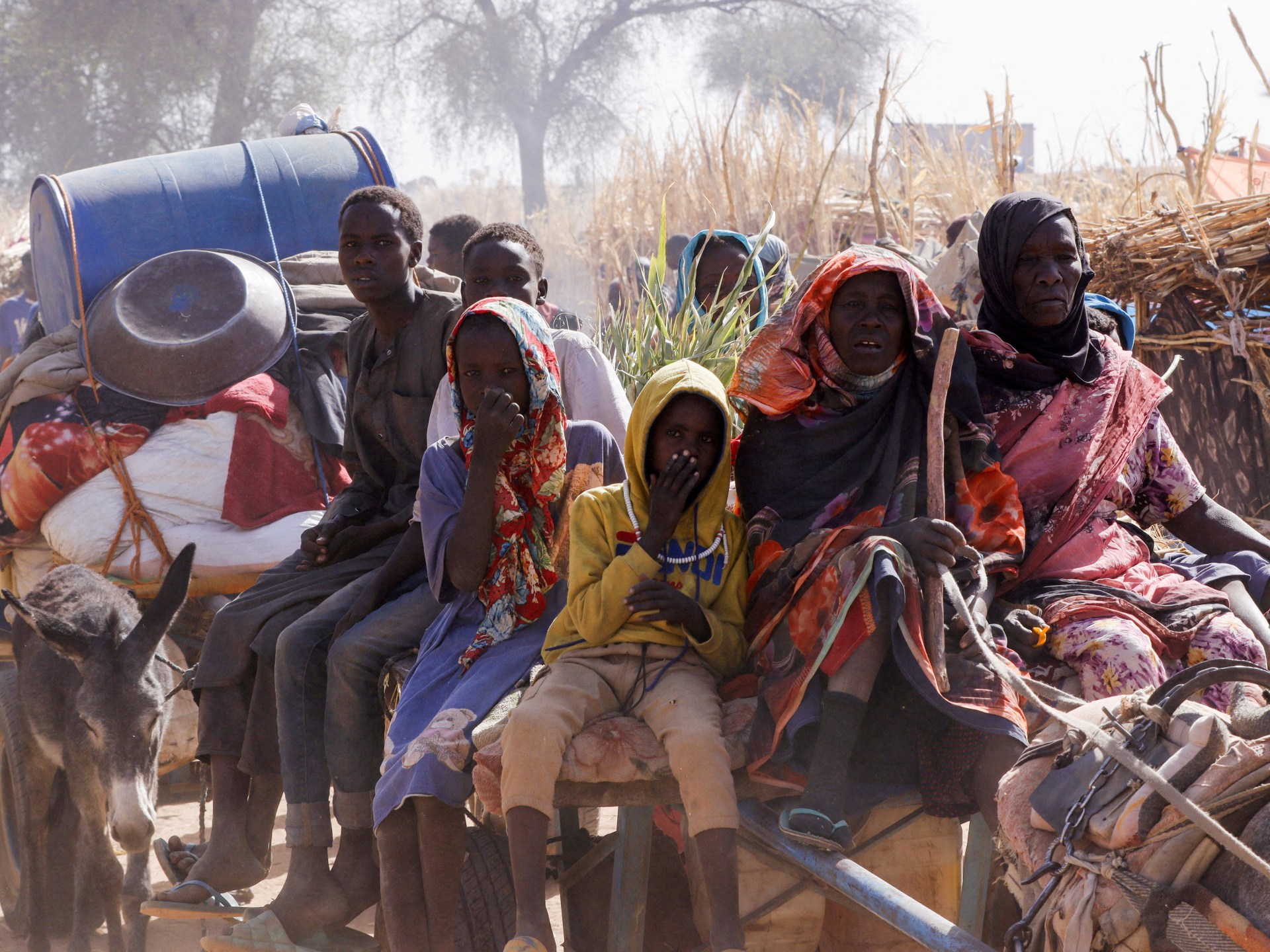
Top UN court says it does not have authority to rule on case accusing UAE of arming rebel Rapid Support Forces paramilitary.
The top United Nations court has dismissed a case brought by Sudan accusing the United Arab Emirates (UAE) of breaching the UN Genocide Convention by arming and funding the rebel paramilitary Rapid Support Forces in Sudan’s deadly civil war.
The International Court of Justice (ICJ) said on Monday that it “manifestly lacked” the authority to continue the proceedings and threw out the case.
While both Sudan and the UAE are signatories to the 1948 Genocide Convention, the UAE has a carveout to the part of the treaty that gives The Hague-based court jurisdiction.
In March, Sudan asked the ICJ for several orders, known as provisional measures, including telling the UAE to do all it can to prevent the killing and other crimes targeting the Masalit people in Darfur.
The UAE called the filing a publicity stunt and, in a hearing last month, argued the court had no jurisdiction.
The court on Monday agreed with the UAE’s arguments, rejected Sudan’s request for emergency measures and ordered the case be removed from its docket.
Due to the lack of jurisdiction, “the court is precluded by its statute from taking any position on the merits of the claims made by Sudan”, a summary of the ruling said.
The UAE hailed it as a legal victory.
“This decision is a clear and decisive affirmation of the fact that this case was utterly baseless. The court’s finding that it is without jurisdiction confirms that this case should never have been brought,” Reem Ketait, deputy assistant minister for political affairs at the UAE’s Ministry of Foreign Affairs, said in a statement.
“The facts speak for themselves: the UAE bears no responsibility for the conflict in Sudan. On the contrary, the atrocities committed by the warring parties are well-documented.”
In an earlier statement, Ketait insisted the UAE “is not involved in the war”.
By a 14-to-two vote, the court threw out Sudan’s request for emergency measures to prevent genocidal acts against the Masalit tribe, which has been the focus of intense ethnic-based attacks by the RSF.
Sudan descended into a deadly conflict in mid-April 2023 when long-simmering tensions between its military and rival paramilitary forces broke out in the capital, Khartoum, and spread to other regions.
Both the Rapid Support Forces and Sudan’s military have been accused of abuses as they battle each other.
The UAE, a federation of seven sheikhdoms on the Arabian Peninsula and an ally of the United States, has been repeatedly accused of arming the RSF, something it has strenuously denied despite evidence to the contrary.
Middle East
How RSF is adopting Israel’s ‘template for genocide’ in Sudan | Sudan war News
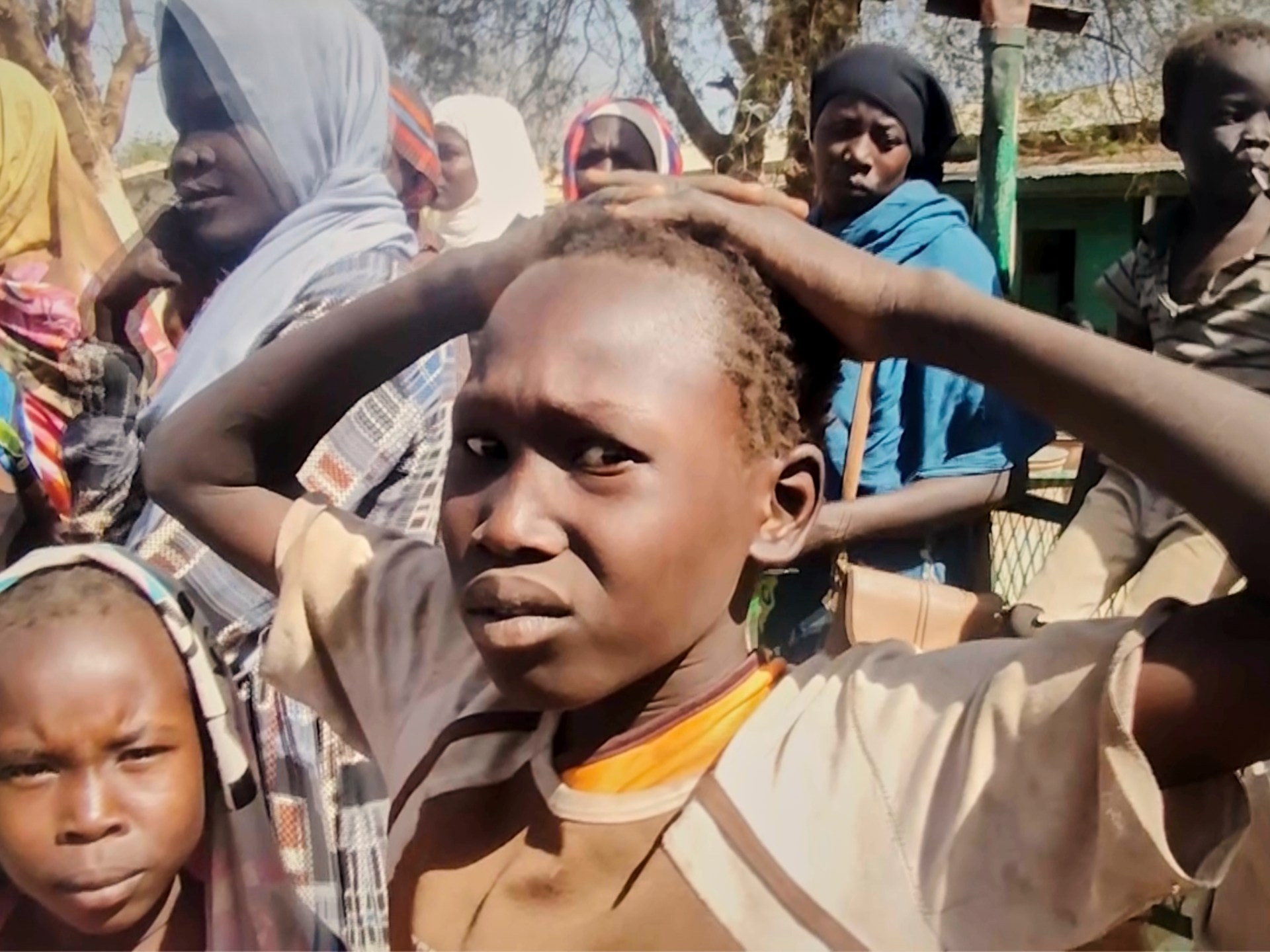
On April 11, the paramilitary Rapid Support Forces (RSF) stormed the Zamzam displacement camp in Sudan’s North Darfur, burning huts and shops, executing medics, and firing at fleeing civilians.
According to monitors, at least 500 people – men, women, children and the elderly – were killed, and hundreds of thousands were forcibly displaced.
The attack provoked global outrage, prompting the RSF to double down on propaganda it had been spreading for months about Zamzam – that it was actually a military barracks.
“Zamzam was a military zone … so the RSF decided that we should evacuate civilians,” RSF adviser Ali Musabel told Al Jazeera, without providing evidence for his claim. “We didn’t want civilians to get caught in the crossfire.”
By labelling Zamzam a military zone, the RSF was trying to apply the same model Israel uses to justify bombing hospitals and schools in the Gaza Strip, said Rifaat Makawi, a Sudanese human rights lawyer.
“This is not a coincidence: it is a deliberate practice aimed at stripping civilians of their legal protection by labelling them as combatants or instruments of war,” he told Al Jazeera.
A template for genocide
Throughout Sudan’s civil war, the RSF has used human rights jargon and terms from international humanitarian law (IHL) – the legal framework designed to protect civilians in times of war – to carry out atrocities.
For years, Israel employed this practice in an attempt to ward off criticism for killing and oppressing Palestinians, according to legal scholars. Since launching its genocidal war on Gaza on October 7, 2023, it has doubled down.
It claims hospitals in Gaza are Hamas “control-and-command centres” – trying to justify attacking health facilities, which are protected under IHL. It also claims Hamas hides among civilians to use them as “human shields” to justify disproportionate and intentional attacks against those same civilians.
In addition, it has branded its mass expulsions of civilians as “humanitarian” evacuations, giving people hours to pack up their entire lives and get out of the way of Israeli bombs, if they can.
Israel stands accused of genocide by rights groups and United Nations experts for its war that has killed at least 52,567 Palestinians.
And the RSF is increasingly adopting Israel’s strategy, local monitors and legal experts say.
“The fact that the claims made by the RSF in Sudan resemble the claims Israel is making in Gaza … reveals the emergence of a template to commit mass extermination and even genocide,” said Luigi Daniele, a senior lecturer on IHL at Nottingham Law School.

The UN accuses both sides in Sudan’s war of committing grave crimes, such as killing and torturing prisoners of war, since a power struggle between the RSF and the Sudanese Armed Forces (SAF) erupted into an all-out civil war in April 2023.
Human rights groups accuse the RSF of perpetrating additional atrocities, including carrying out a possible genocide against the “non-Arab” communities in Darfur.
From Janjaweed to human rights language
The RSF emerged from the nomadic “Arab” militias in Darfur, which became known as the Janjaweed (devils on horseback in Sudanese Arabic) for the countless atrocities they committed.
The army used the Janjaweed to crush a rebellion by sedentary farming “non-Arab” communities that started in 2003. The sedentary communities were protesting against their political and economic marginalisation in Sudan.
SAF and RSF were closely aligned until at least 2021, when they came together to overthrow the civilian administration with which they had been sharing power after a popular uprising toppled autocratic President Omar al-Bashir in 2019.
Shortly after the coup, the RSF signed a memorandum of understanding with the International Committee for the Red Cross (ICRC) to receive human rights training.
Now, the RSF and its political allies are using human rights terminology to try to whitewash their atrocities.
On March 8, an RSF-backed political alliance, Tasis (Foundation), tweeted: “We stand in solidarity with Sudanese women in their recent ordeal, where they have faced particularly tragic conditions and been subjected to horrific violations, as a result of the unjust war.”
Tasis made no mention of the reports published by Human Rights Watch and Amnesty International, which accuse the RSF of widespread sexual violence and rape throughout the war.
During the raid on Zamzam, the RSF reportedly abducted 25 women and girls and raped others, according to the Strategic Initiative for Women in the Horn of Africa, a local monitor documenting sexual violence in the region.
“What I see today in Darfur, and specifically in Zamzam, is not merely a violation of the IHL, but evidence of its distortion and transformation into a cover under which the gravest crimes are committed,” human rights lawyer Makawi told Al Jazeera.
Finishing the genocide?
The Zamzam camp sprang up in 2003, 15km (9.3 miles) from North Darfur’s capital, el-Fasher, to shelter “non-Arab” Zaghawa and Fur communities, which fled Popular Defence Forces’ violence during the first Darfur war.
Both communities suffered genocidal levels of violence and were expelled from their lands by the state-backed Janjaweed. Zamzam soon became a symbol of the atrocities they endured.

Some 350,000 people settled in the camp, swelling to more than half a million as the RSF and the army went to war and the paramilitary group captured South, East, West and Central Darfur states in late 2023.
In April 2024, the RSF besieged el-Fasher and surrounding towns after the Joint Forces – a coalition of “non-Arab” armed groups formed to fight the government in the past – shed their neutrality and sided with the army.
Given the RSF’s track record of enmity towards “non-Arab” ethnic groups, the Joint Forces feared widespread ethnic killings if the RSF captured the entire state.
The RSF blocked aid from anyone not aligned with them, leading to famine in Zamzam. As civilians withered away from hunger, the RSF began claiming that Zamzam was a “military base”, revealing its intention to attack.
“This claim that there was a military base in Zamzam was never correct … we had some people who acted as a police force, but there were no military leaders in the camp,” said Mosab, a middle-aged man who survived the killing in Zamzam and now languishes in the nearby town of Tawila.
Musabel, the RSF adviser, told Al Jazeera that the high civilian death toll was due to the Joint Forces using “human shields”, without providing evidence.
Ethnic cleansing
The RSF has also mimicked the Israeli tactic of carrying out mass expulsions under a humanitarian guise.
Since October 7, 2023, Israel has pushed 2.3 million Palestinians into smaller and smaller pockets of land, which it describes as “safe zones” in Gaza.
Israel bombs or invades those areas, claiming they “became military targets” due to the ostensible presence of someone from Hamas there.
“What Israel has done in Gaza, in reality, has been issuing mass expulsion orders under threats of extermination, which is a declaration of intent to commit international crimes,” Nottingham Law School’s Daniele said.
On April 11, Tasis posted on Facebook, calling for civilians to flee Zamzam through what it called “humanitarian corridors” leading to nearby towns such as Tawila and Korma.

Yet on April 27, an RSF commander was seen announcing the detention of a group of unarmed men who fled Zamzam through a supposed humanitarian corridor to Tawila, in a video verified by Al Jazeera’s authentication unit, Sanad.
He said the men had sided against their Darfuri brethren and with the traditional elite, represented in the “Arab” Jalaba tribes who live in central and northern Sudan and comprise much of Sudan’s military and political elite. He added that they might kill the detained men to serve as an example to others.
The RSF has framed its war against the army as a fight on behalf of peripheral tribes against the central elite, while at the same time committing egregious abuses against the most marginalised tribes in Darfur.
The detainees were relief workers, according to local monitors, who fear they were killed. Al Jazeera was unable to confirm their fate.
Survivors told Al Jazeera that the RSF had carried out ethnic cleansing, possibly amounting to several war crimes.
“Some of us were executed [by the RSF] along [the road out of Zamzam] and others were violently displaced,” said Mohamed Idriss*, who walked for 13 hours before arriving in el-Fasher.
“We were exposed to so many violations, [the RSF] committed massacres and ethnic cleansing,” he told Al Jazeera.
-

 Lifestyle2 days ago
Lifestyle2 days agoRain Barrel Village gives visitors a taste of old Florida and a photo op with a giant lobster
-

 Middle East2 days ago
Middle East2 days agoCanelo Alvarez beats Scull to reclaim undisputed super-middleweight title | Boxing News
-
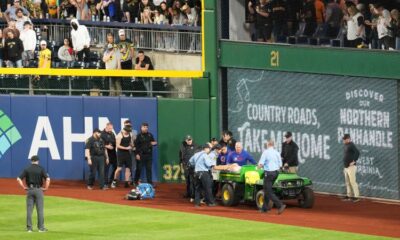
 Sports2 days ago
Sports2 days agoPeople close to the fan who fell onto field at PNC Park share positive update
-

 Europe2 days ago
Europe2 days agoTrump draws criticism with AI image of himself as the pope ahead of the papal conclave
-

 Europe2 days ago
Europe2 days agoFour Iranians among five arrested in UK over alleged terror plot
-

 Europe2 days ago
Europe2 days agoVenice is sinking. Now there’s a radical plan to lift the entire city above rising floodwaters
-

 Sports2 days ago
Sports2 days agoRoger Clemens: Red Sox great watches son Kody hit Fenway Park home run – for the Minnesota Twins
-
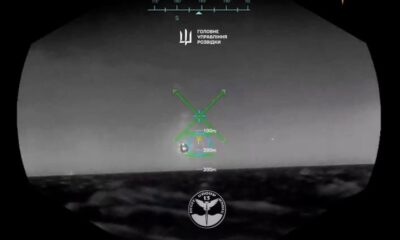
 Europe2 days ago
Europe2 days agoUkraine claims it destroyed Russian fighter jet using seaborne drone for the first time




